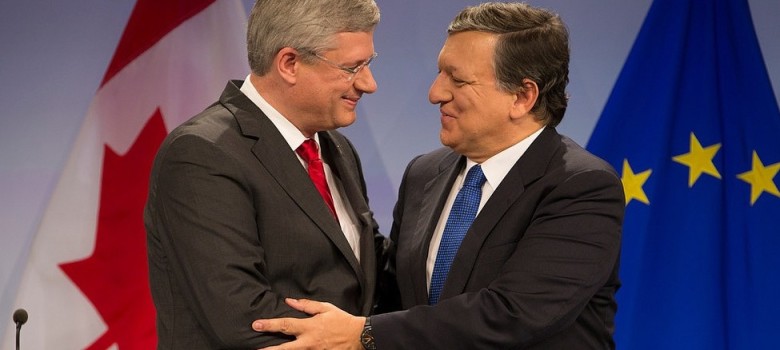For the second time in less than a year, Canada and the EU have announced that they reached agreement on the Canada – EU Trade Agreement. Back in October 2013, there was an announcement of an agreement “in principle”. The announcement did not include a release of the text and the parties said there was still further work to be done on drafting and legal analysis. Yesterday, brought another announcement of an agreement on the text. Once again, the announcement did not include a release of the text and the parties said there was still further work to be done on legal review and translation into 23 languages.
Given the agreement is 1,500 pages, the additional work is expected to take a considerable amount of time. While government ministers claimed that CETA “is ready for debate and ratification”, the reality is that there cannot be a meaningful, informed debate without the actual text. Releasing it for full study and comment is the essential next step.
Analysis without the text is difficult, however, the combination of prior leaks and media reports indicate that Canada caved on its concerns regarding the potential replication of Eli Lilly-style pharmaceutical patent lawsuits. I wrote about the issue earlier this week, with the $500 million lawsuit by Eli Lilly prompting the Canadian government to propose an ISDS carve out for court decisions and administrative tribunal rulings involving pharmaceutical patents. The Canadian proposal stated:
For greater certainty, this Article does not apply to a decision by a court, administrative tribunal, or other governmental intellectual property authority, limiting or creating an intellectual property right, except where the decision amounts to a denial of justice or an abuse of right.
The EU countered with a proposal to merely include the following in a separate annex or joint understanding:
For greater certainty, the revocation, limitation or creation of intellectual property rights to the extent that these measures are consistent with TRIPS and the IPR Chapter of CETA, do not constitute expropriation. Moreover, a determination that these actions are inconsistent with the TRIPS Agreement does not establish that there has been an expropriation.
The EU offer was obviously far less than what Canada proposed: it was a side understanding rather substantive provisions within the agreement and it did not carve out anything (rather it sought to “clarify” the scope of the provision).
So how did they resolve the issue? IPolitics reports that Canadian officials said the following yesterday:
We did agree to a declaration that relates to investor-state dispute settlement when it comes to pharmaceutical products, and we have made it clear in that joint declaration with the EU that investor-state disputes are not to be used as an appeal mechanism for decisions made in domestic courts. We have undertaken to review three years after the entry into force, at the request of either party, how investor-state dispute settlement is working with respect to the pharmaceutical area. And we would be prepared to make changes if necessary. We’ve also talked about parties possibly issuing binding interpretations if we find that arbitration panels may be drifting away from what our intention has been.
In other words, Canada caved. The EU proposal for a joint understanding was adopted with some clarifying language and no carve out. The only real addition was a three year review, which ironically is a favourite giveaway for the Conservatives to the opposition (reviews were added to C-13 and C-36 over the past two months) when it seeks to show a willingness to compromise but not actually change anything of substance.








ISDS carve out for court decisions and administrative tribunal rulings involving pharmaceutical patents. The Canadian proposal stated..
Pingback: In the name of ‘free trade’ our public health care system is forced to swallow another poison pill | The Global Realm
Pingback: In the name of ‘free trade’ our public health care system is forced to swallow another poison pill | Ecocide Alert
soğuk hava deposu imalatı konusunda onlarca referans ile türkiye nin en büyük soğuk hava deposu imalatçısı olma yolunda ilerliyoruz. bizi destekleyen müşterilerimize saygılar.